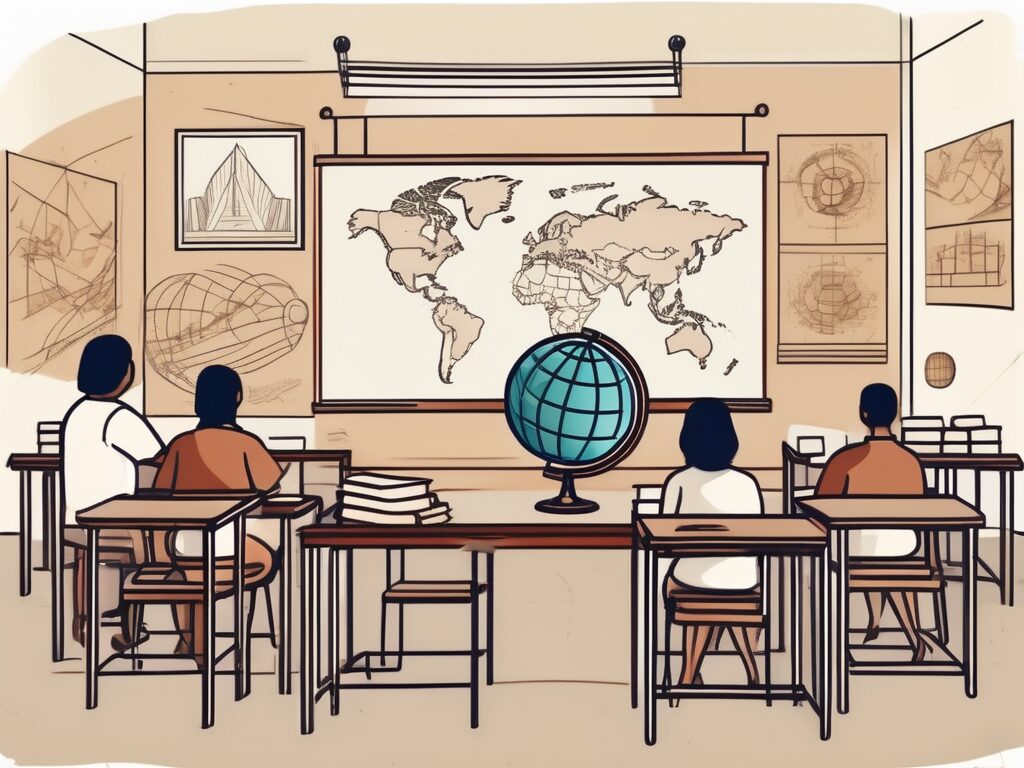Indonesia, an archipelago nation with over 17,000 islands, is a melting pot of cultures, traditions, and languages. With its rich history and diverse population, it presents a unique opportunity for international educators. However, teaching in Indonesia is not without its challenges. From language barriers to cultural differences, educators often find themselves navigating through a labyrinth of complexities. This article aims to shed light on these challenges and offer some insights into the world of international teaching in Indonesia.
Understanding the Language Barrier
One of the most significant challenges that international educators face in Indonesia is the language barrier. While English is taught in schools, it is not the primary language for the majority of the population. This can make communication with students, parents, and even colleagues challenging.
However, it’s not just about language proficiency. The nuances of the Indonesian language, with its regional dialects and colloquialisms, can be difficult to grasp for a non-native speaker. This can lead to misunderstandings and miscommunications in the classroom.
Overcoming the Language Barrier
While the language barrier can be daunting, it’s not insurmountable. Many international educators opt for language classes to learn Bahasa Indonesia, the official language. This not only helps in communication but also shows respect for the local culture.
Another effective strategy is to use visual aids and interactive teaching methods. This can help bridge the language gap and make lessons more engaging for students.
Navigating Cultural Differences
Indonesia is a country with a rich cultural heritage. This diversity can be a source of fascination for international educators, but it can also present challenges. Understanding and respecting local customs and traditions is crucial for building relationships with students and their families.
For instance, the concept of ‘saving face’ is deeply ingrained in Indonesian culture. This means that direct criticism or confrontation can be seen as disrespectful. This can be a challenge for educators who are used to a more direct approach in their home countries.
Embracing Cultural Differences
One of the best ways to navigate cultural differences is to embrace them. This means taking the time to learn about local customs, traditions, and etiquette. It’s also important to be open-minded and flexible, as what works in one culture may not work in another.
Participating in local events and festivals can also be a great way to immerse yourself in the culture and build connections with the community. Remember, it’s not about changing who you are, but about understanding and respecting who they are.
Adapting to the Educational System
Like any country, Indonesia has its own unique educational system. International educators may find it challenging to adapt to this system, particularly if it’s significantly different from what they’re used to.
For example, rote learning is still prevalent in many Indonesian schools. This contrasts with the more interactive and student-centred approaches often favoured by international educators. Additionally, the emphasis on high-stakes testing can be a source of stress for both students and teachers.
Working Within the System
Adapting to a new educational system can be challenging, but it’s not impossible. It’s important to understand the system and work within it, while also bringing your own unique teaching style and methods to the classroom.
Collaborating with local teachers can also be beneficial. They can provide valuable insights into the system and offer advice on how to navigate it. Remember, it’s about finding a balance between respecting the existing system and introducing new ideas.
Dealing with Limited Resources
Another challenge that international educators may face in Indonesia is limited resources. This can range from a lack of textbooks and teaching materials to limited access to technology.
This can be particularly challenging for educators who are used to having a wide range of resources at their disposal. However, it’s also an opportunity to get creative and think outside the box.
Making the Most of What You Have
While limited resources can be a challenge, they can also be a catalyst for innovation. Many educators find that they become more resourceful and creative when faced with this challenge.
For example, you might use local materials to create teaching aids, or incorporate real-world examples into your lessons. Technology can also be a powerful tool, even if it’s not widely available. For instance, a single computer or tablet can be used for group activities or research projects.
Conclusion
Teaching internationally in Indonesia can be a rewarding and enriching experience. However, it’s not without its challenges. From language barriers to cultural differences, and from adapting to the educational system to dealing with limited resources, there’s a lot to navigate.
But with an open mind, a willingness to learn, and a dash of creativity, these challenges can be overcome. And in the process, you’ll not only be teaching your students, but also learning from them and from the rich and diverse culture of Indonesia.
Elevate Your Teaching Career with IPGCE
Ready to transform the challenges of teaching internationally into opportunities for growth? Join IPGCE, the UK’s #1 Teacher Training Course, and gain the qualifications and skills needed to thrive in diverse educational settings like Indonesia. Our International Postgraduate Certificate in Education (iPGCE) is tailored for educators seeking to enhance their credentials, connect with a global professional community, and unlock new career prospects. With a proven track record of increasing interview callbacks, promotion rates, and salary potential, the iPGCE is your gateway to a fulfilling international teaching career. Embrace the journey of professional development and Join the UK’s #1 Teacher Training Course today.

